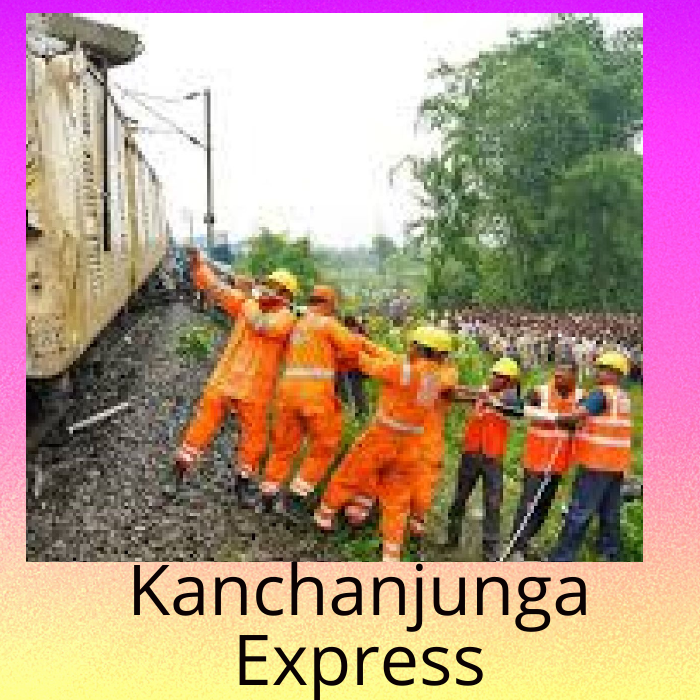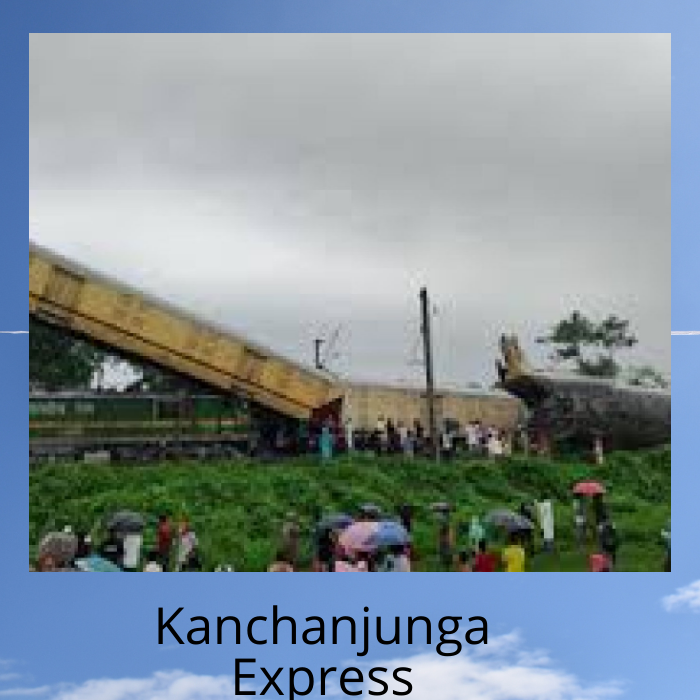Kanchanjunga Express
Kolkata: On Monday morning, the Kanchanjunga Express, which was traveling from Agartala in Tripura to Sealdah in Kolkata, was rear-ended by a freight train near Rangapani station, close to New Jalpaiguri. The tragic accident claimed nine lives and injured forty-one more. The preliminary investigation points to a combination of signal failure and human error as contributing factors.
According to an initial assessment released by the Railway Board on Monday, the freight train collided with the Kanchanjunga Express at a speed above the speed limit due to an autonomous signaling system malfunction. Railways have not yet provided a statement on this matter.
When the automatic system fails, Railway protocol mandates a written authorization known as TA 912. This document allows train operators to proceed through all red signals due to signaling issues, as long as they adhere to rigorous safety protocols. TA 912 was given to the freight train and the Kanchanjunga Express.
According to railway rules under TA 912, drivers must halt for one minute at each malfunctioning signal and proceed at a maximum speed of 10 km/h. Additionally, they must maintain a 150-meter distance from the preceding train to ensure appropriate stopping distance if the prior train hasn’t passed the signal. The freight train driver in this instance, however, disregarded these important guidelines.
With TA 912, the Kanchanjunga Express had crossed nine automatic signals and halted at the ninth one, pending new authorization to continue.
The freight train driver was permitted to run all red signals between Rangapani and Chattahhat railway stations, according to the Railway Board, because of a malfunctioning automatic signaling system. However, the train’s speed surpassed the allowed limit for such scenarios. The Rangapani station master issued TA 912 to the freight train, allowing it to past nine red signals. Given that the automatic signaling system had been broken since 5:50 AM on the day of the accident, this permit was essential.
At 8:55 a.m., the freight train GFCJ, which had left Rangapani, collided with the halted Kanchanjunga Express. The passenger train’s general seating coach, two package coaches, and the guard’s coach all derailed as a result of the incident. One of the people who died in the disaster was the freight train driver, who disregarded the required speed limits.
During the signaling issue, the Kanchanjunga Express driver complied with all safety procedures. At every red light, he halted for one minute before continuing at a speed of 10 km/h. On the other hand, the driver of the freight train went faster than was allowed and collided with the passenger train.

The driver was given permission to pass all automatic signals between Rangapani and Chattahhat, regardless of whether they were red or caution signs, according to the TA 912 authorization letter, which also said that the automatic signaling system had failed. A train should halt for one minute during the day and two minutes at night when it encounters a red light, according to the Railway Board. After that, it should move very carefully at a speed of no more than 15 km/h in excellent visibility and 10 km/h in bad visibility.
The freight train broke the speed limit in spite of these regulations, which led to the disastrous crash. The freight train’s precise speed has not been made public by the Railway Board.
The afternoon saw the end of the rescue mission, but work to remove the overturned carriages and resume rail service went on. At North Bengal Medical College and Hospital, a number of injured passengers received treatment; of them, 41 were admitted, nine of them were in serious condition.
The accident’s reasons are being looked investigated by the Commissioner of Railway Safety (CRS). In addition to overseeing rescue work and announcing compensation for the relatives of the fatalities, Railway Minister Ashwini Vaishnaw visited the scene. The badly injured will receive ₹2.5 lakh, the families of the deceased ₹10 lakh, and the families of those with lesser injuries ₹50,000..
In addition to expressing his sympathies to the victims, Prime Minister Narendra Modi wished the injured people a quick recovery.
The train disaster in West Bengal is a tragic occurrence. Sending sympathy to those who have lost a dear one.I pray for the swift recovery of those who were injured.. spoke with representatives and assessed the circumstances. Rescue efforts are in progress to aid the impacted parties.PM Modi posted on X that “Railway Minister Shri @AshwiniVaishnaw is also on his way to the accident site.”
Tragically, a rail tragedy occurred in West Bengal. Sending sympathy to those who have lost a dear one. I offer prayers for the injured people’s quick recovery.
